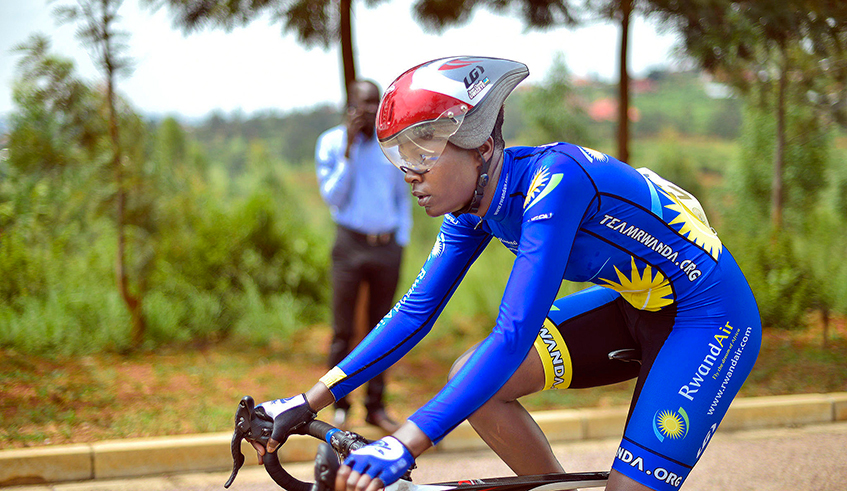

Jacqueline Tuyishime, who lives in Nyabihu District, is a 21 year-old cyclist who represented Rwanda at the African Continental Road Championships Bahir Dar, Ethiopia last year. It was her second time to represent the country.
Tuyishime discovered her passion for cycling while she was in the fifth year of primary school. She started training on her own.
Despite her childhood interest in cycling, she had never thought of riding a bicycle as a profession.
A few years later, she raised money to renovate her family house, and bought a piece of land for farming.
She is among the few women and men in Rwanda who have developed a career in cycling, she describes it as a decent profession and encourages the youth to join.
Every year on June 3, the world celebrates the uniqueness, durability and flexibility of the bicycle.
It is regarded as an affordable, reliable, clean and environmentally friendly means of transportation.
Adrien Niyonshuti, 33, is a cyclist who started riding while he was still in school in 2004.
After 16 years, he has accumulated wealth and founded a recognizable cycling team, just from his cycling career.
"Cycling is a very good sport. It helps your body to relax and helps you think. You use almost every body muscle,” Niyonshuti says. "However, we should understand that it requires a lot.”
For instance, he explains, if one is an athlete, they need sportswear and shoes, but for cyclists, they need that plus a bicycle which could cost around five million.
Niyonshuti explained that more investment is needed if cycling is to be endeared to young people.
He has proposed that insurance firms develop products that target the cycling profession in order to de-risk the sport.
Athletes are not the only ones benefiting from bicycles. It is arguably the cheapest mode of transport in the country, especially in rural Rwanda, where more people rely on it for transportation of their produce to the market.
Cycling also has health benefits, including staying fit.
The bicycle and environmental protection
According to data from Rwanda Environment Management Authority (REMA), as of 2018, motorcycles were the leading source of air pollution in Kigali – making transport in general as the leading source of emission in the capital city – followed by cooking and then industrial activities.
However, in other parts of the country, cooking emissions top the list of air pollution.
Modeste Mugabo, the Air Pollution Monitoring Sector Specialist in REMA, explains that if people embraced the culture of cycling, air pollution would be commendably reduced.
"Climate change is to a big extent caused by air pollution from human activity; vehicles that use petrol and diesel.
"We suggest a bicycle as an option, when it comes to individual contribution. One can have a bicycle as an option of travel because it doesn’t emit the gases that lead to climate change.”
Mugabo adds that a bicycle is affordable and also keeps one fit, besides saving the environment, hence a good contributor to reduce air pollution.
However, he says that most Rwandans need to change their mindsets towards bicycles and consider making them their main mode of transport.
The World Health Organisation (WHO) data indicate that in 2016, approximately 600,000 children died from acute lower respiratory infections caused by polluted air.
The bicycle has the ability to reduce these deaths.


